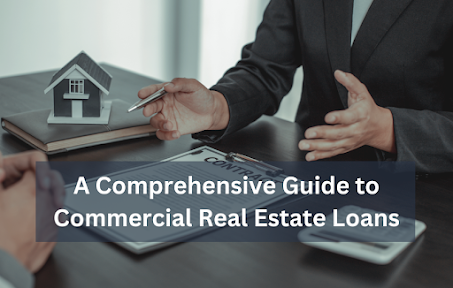A Comprehensive Guide to Commercial Real Estate Loans
If you're planning a new project as a subdivision developer or seeking to refinance an office building as an owner, you'll require a commercial real estate loan. Commercial real estate pertains to properties used for business purposes, such as malls or hotels, and differs from residential real estate. Business owners, including small business owners, developers, and investors, are the typical borrowers for commercial real estate loans. Unlike residential mortgages, these loans follow a distinct process of underwriting, structure, interest rates, and fees, with multiple options available.
Understanding Commercial Real Estate Loans
Commercial real estate loans, like residential mortgages, are secured by liens and often utilized to fund property acquisition, development, and construction. However, commercial loans diverge because they may not be amortized over 20 years and are generally categorized as intermediate-term (lasting 3 years or less) or long-term (lasting 5-20 years).
To obtain a commercial real estate loan, it's necessary to present a comprehensive business plan to lenders to demonstrate the safety of investing in your business. The underwriting process for commercial real estate loans is rigorous, so be prepared to answer many questions. Additionally, interest rates for commercial real estate loans are usually higher than those for residential properties because businesses are riskier to lend to and have shorter credit histories.
Types of Commercial Real Estate Loans
The SBA 7(a) loan: It is the prevalent kind of SBA loan utilized for acquiring or refinancing properties up to $5 million. This loan finances 85-90% of the purchase price, and it's possible to forego the 10-15% down payment by satisfying specific criteria, such as possessing two years of consistent cash flow and a personal credit score exceeding 680.
CDC/SBA 504 Loans: This loan consists of two loans, with a traditional bank covering up to half and a Certified Development Company (CDC) chipping in up to 40% of the purchase price. No upper limit exists to the loan amount, but the company must exhibit an average net income below $5 million and a net worth lower than $15 million. This loan is specifically intended to create jobs, and the borrower must create or retain one job for every $65,000 issued.
Traditional Commercial Mortgages: Issued by banks or other lending institutions, traditional mortgages are not backed by the federal government. They provide 65-85% loan-to-value and are structured similarly to residential mortgages. Borrowers should have at least 1-5 years in business and a credit score of 700+.
Commercial Bridge Loans: These 6- to 36-month loans provide short-term funding to purchase owner-occupied properties before later refinancing with a long-term mortgage. The quick turnaround helps borrowers compete for properties with all-cash buyers. Bridge loans cover 80-90% loan-to-value and require a 650+ credit score, prior completion of 1-3 prior commercial projects, and a debt service coverage ratio of 1.10 or more.
Commercial Hard Money Loans: These loans cover 80% loan-to-cost (when the borrower plans to both purchase and renovate) or 90% loan-to-value (when the property is in good condition). They are similar to bridge loans in qualifications for borrowers and are offered for short terms. However, they're not just for rehabbing properties before occupying them.
Choosing the Right Loan for Your Business
Choosing the right loan for your business is a crucial decision that requires careful consideration of various factors. To ensure that you make an informed decision, it's essential to assess the terms, fees, and requirements of the loan options available to you.
Ultimately, the goal of selecting the right loan is to ensure that your enterprise is able to secure the funding necessary to acquire the right location at the right price. Therefore, it's important to carefully consider all factors involved in the loan process, and choose the loan that will allow your business to thrive and grow in the long term.
Are you ready to take your business to the next level with a commercial real estate loan? Look no further than 504 Capital, your trusted SBA lender in North Carolina! Our team is committed to helping businesses like yours achieve their goals by providing personalized, expert guidance throughout the loan process. With our wide range of loan options and competitive rates, you can feel confident that you're getting the best financing solution for your needs. Don't wait any longer to make your business dreams a reality. Contact us today and let's get started!
FAQ
What are the minimum qualifications for a commercial real estate loan?
The qualifications depends on the type of loan you are planning to take, but generally, you need to have a strong credit score, a detailed business plan, and a sufficient down payment.
How long does it take to get approved for a commercial real estate loan?
It can be lengthy, often taking several weeks or even months because lenders need to conduct a thorough analysis of your business's financial health and creditworthiness, as well as evaluate the property you're seeking to purchase.
Can I refinance my existing commercial real estate loan?
Yes, you can refinance an existing commercial real estate loan to take advantage of better rates or terms, consolidate debt, or free up cash flow. Be sure to carefully evaluate your options and consult with a lender or financial advisor before making any decisions.



Comments
Post a Comment